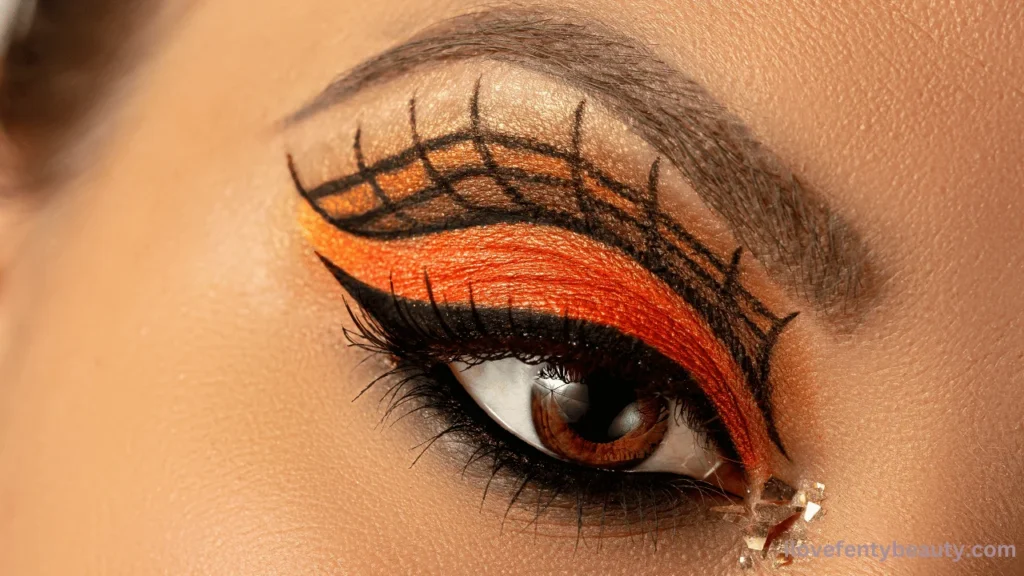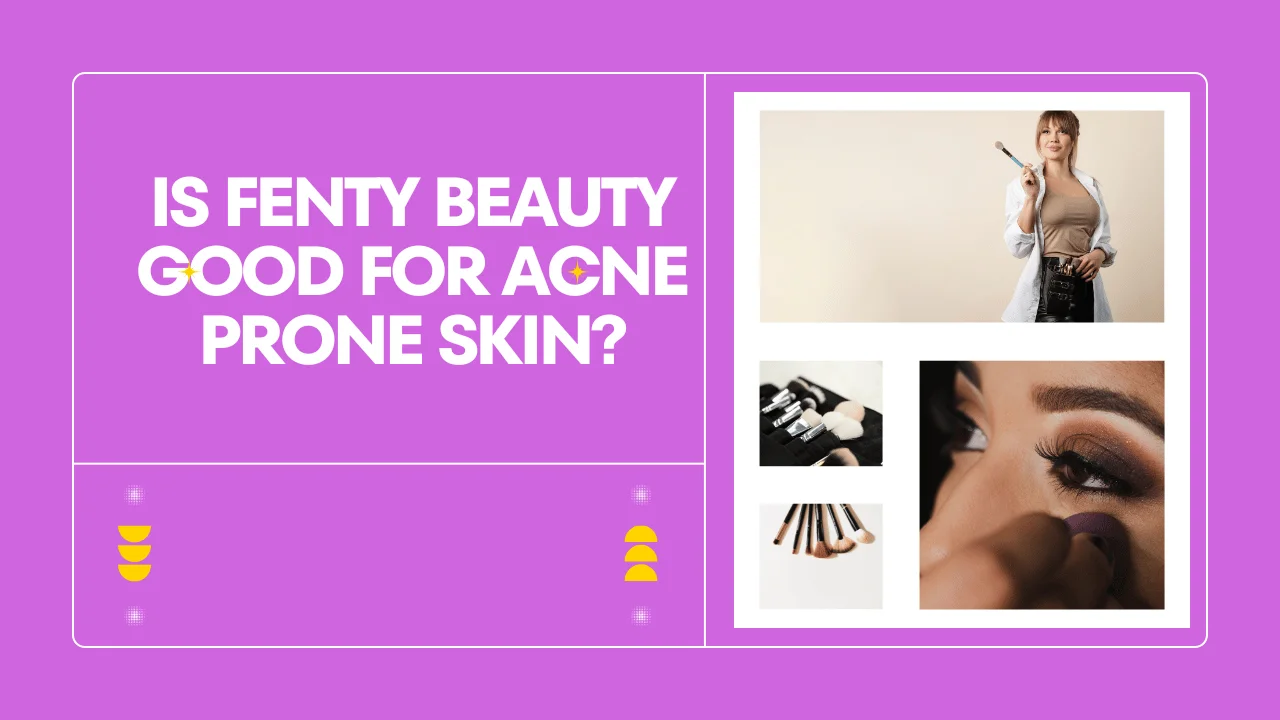Let’s face it, battling acne is a never-ending struggle.
You finally find a foundation that gives you that flawless, airbrushed look, only to wake up the next morning with a battlefield erupting on your face. Sound familiar? If you have acne-prone skin, the quest for the perfect foundation can feel like searching for a unicorn.
Fenty Beauty has taken the beauty world by storm with its inclusive shades and high-performance formulas. But the question remains: is Fenty Beauty a breakout buster or a pimple promoter for those of us waging war against acne?
Fear not, fellow acne warriors! This blog post dives deep into the world of Fenty Beauty foundations for acne-prone skin. We’ll dissect the ingredients, explore real-world experiences from people just like you, and unpack expert advice to help you decide if Fenty Beauty can be your foundation soulmate.
So, grab your spot treatment (and maybe a stress ball, because breakouts can be frustrating!), settle in, and let’s find out if Fenty Beauty truly lives up to its inclusive reputation for all skin types!
Contents
- 1 Understanding Acne-Prone Skin and Foundation Needs
- 2 Analyzing Fenty Beauty Foundation Formulas
- 3 Consumer Experiences and Reviews
- 4 Expert Opinions and Dermatological Advice
- 5 The Future of Foundation for Acne-Prone Skin
- 6 Conclusion
- 7 FAQ’s
- 7.0.1 Is Fenty Beauty foundation good for acne-prone skin?
- 7.0.2 Which Fenty Beauty foundation is best for acne-prone skin?
- 7.0.3 Does Fenty Beauty foundation clog pores?
- 7.0.4 How long does Fenty Beauty foundation last on acne-prone skin?
- 7.0.5 Can I use Fenty Beauty foundation with other makeup products?
- 7.0.6 How can I prevent my makeup from looking oily throughout the day?
Understanding Acne-Prone Skin and Foundation Needs
Acne-prone skin is characterized by excess sebum production, inflammation, and clogged pores. This can lead to various skin concerns, including blackheads, whiteheads, pimples, and cysts. When choosing a foundation, individuals with acne-prone skin should prioritize oil-free, non-comedogenic formulas that won’t clog pores and exacerbate breakouts.
An ideal foundation for acne-prone skin should possess the following qualities:
- Oil-free: This helps to control excess sebum production and prevent shine.
- Non-comedogenic: This ensures that the foundation won’t clog pores and lead to breakouts.
- Lightweight: A lightweight formula can help to minimize the risk of irritation and breakouts.
- Matte finish: A matte finish can help to control shine and absorb excess oil.
Analyzing Fenty Beauty Foundation Formulas
Pro Filt’r Soft Matte Longwear Foundation is one of Fenty Beauty’s most popular foundations. It’s formulated to be oil-free and long-lasting, making it a potential good option for acne-prone skin. However, some individuals with sensitive skin may find the formula to be slightly drying.
The Pro Filt’r Hydrating Longwear Foundation is designed to provide hydration, but it may not be the best choice for those with very oily or acne-prone skin. While it offers a dewy finish, it could potentially contribute to excess oil production and clogged pores.
Other Fenty Beauty foundations, such as the Eaze Drop Blurring Skin Tint, may be more suitable for those with mild acne or those who prefer a lighter coverage. However, it’s important to note that individual skin types and preferences can vary.

Consumer Experiences and Reviews
Many consumers with acne-prone skin have reported positive experiences with Fenty Beauty foundations, particularly the Pro Filt’r Soft Matte Longwear Foundation. They praise its oil-control properties, long-lasting wear, and matte finish.
However, some users have reported experiencing breakouts or clogged pores, especially when using the foundation in combination with other comedogenic products. It’s important to note that individual skin reactions can vary, and what works for one person may not work for another.
Expert Opinions and Dermatological Advice
Dermatologists often recommend using oil-free, non-comedogenic foundations for acne-prone skin.
These products are less likely to clog pores and exacerbate acne. While Fenty Beauty foundations can be a good option for some people with acne-prone skin, it’s important to consider individual skin needs and preferences.
A proper skincare routine is crucial for managing acne-prone skin. This includes gentle cleansing to remove excess oil and dirt, using a toner to balance the skin’s pH, and applying a lightweight, oil-free moisturizer. Additionally, using oil-absorbing sheets throughout the day can help control shine and prevent breakouts.
The Future of Foundation for Acne-Prone Skin
The beauty industry is constantly evolving, and new innovations in foundation technology are emerging.
Emerging trends in foundation formulations include lightweight, breathable formulas, advanced oil-control technologies, and natural, skin-friendly ingredients.
Clean beauty and sustainable ingredients are becoming increasingly important to consumers. Brands like Fenty Beauty may incorporate these trends into their future foundation formulations, offering products that are both effective and environmentally friendly.
As consumer preferences and needs continue to evolve, Fenty Beauty and other brands will need to adapt their product offerings to meet the specific needs of individuals with acne-prone skin.
By staying ahead of the curve and incorporating innovative technologies, these brands can provide solutions that help people with acne-prone skin achieve a clear and healthy complexion.
Conclusion
Fenty Beauty offers a range of foundation options that can be suitable for acne-prone skin, particularly the Pro Filt’r Soft Matte Longwear Foundation.
However, it’s important to choose the right formula based on your specific skin needs and preferences. By combining the right foundation with a proper skincare routine, you can achieve a flawless complexion and minimize the risk of breakouts.
Remember, individual skin types and preferences can vary. It’s always best to experiment with different products and find what works best for you.
FAQ’s
Is Fenty Beauty foundation good for acne-prone skin?
While Fenty Beauty offers a range of foundation formulas, the Pro Filt’r Soft Matte Longwear Foundation is particularly well-suited for acne-prone skin. Its oil-control properties and matte finish help to minimize shine and prevent breakouts.
Which Fenty Beauty foundation is best for acne-prone skin?
The Pro Filt’r Soft Matte Longwear Foundation is the top choice for acne-prone skin due to its oil-control properties and matte finish. However, it’s important to consider individual skin needs and preferences. Some people may find the formula slightly drying, so it’s recommended to use a hydrating primer beforehand.
Does Fenty Beauty foundation clog pores?
While Fenty Beauty claims to be non-comedogenic, it’s important to note that individual skin reactions can vary. Some people with sensitive or acne-prone skin may experience breakouts, even with non-comedogenic products. It’s recommended to patch test new products before using them on the entire face.
How long does Fenty Beauty foundation last on acne-prone skin?
Fenty Beauty foundations are known for their long-lasting wear. However, for acne-prone skin, it’s important to set the foundation with a translucent powder to help control shine and extend wear time.
Can I use Fenty Beauty foundation with other makeup products?
Yes, Fenty Beauty foundations can be used with other makeup products, such as primers, concealers, and powders. However, it’s important to choose products that are compatible with your skin type and desired finish. For acne-prone skin, using a non-comedogenic primer and setting powder can help to minimize the risk of breakouts.
How can I prevent my makeup from looking oily throughout the day?
o prevent your makeup from looking oily, follow these tips:
Use an oil-free primer to create a smooth base for your foundation.
Choose a matte or semi-matte foundation.
Set your foundation with a translucent powder to control shine.
Use oil-absorbing sheets throughout the day to blot away excess oil.
Avoid touching your face too often, as this can transfer oils and bacteria to your skin.








